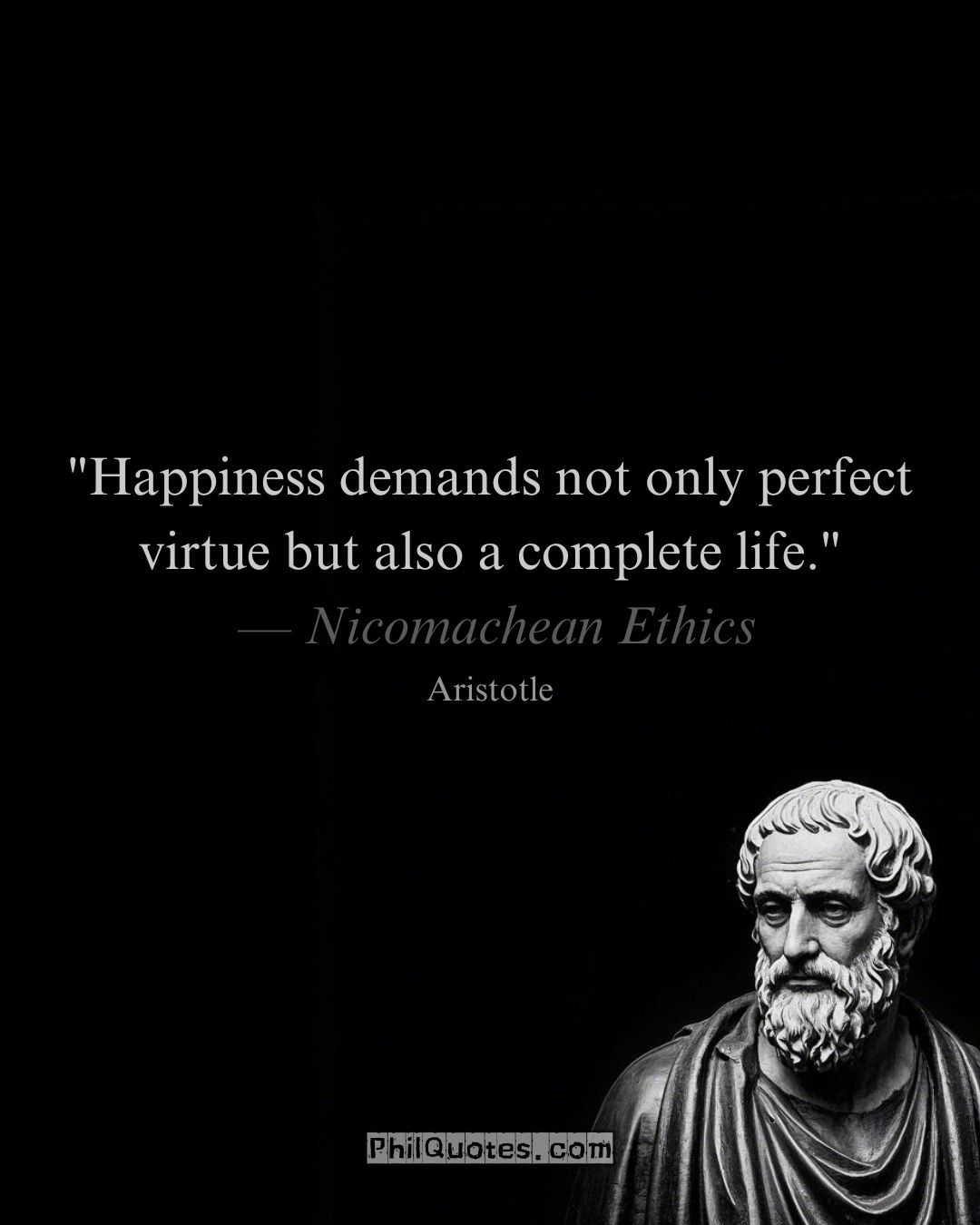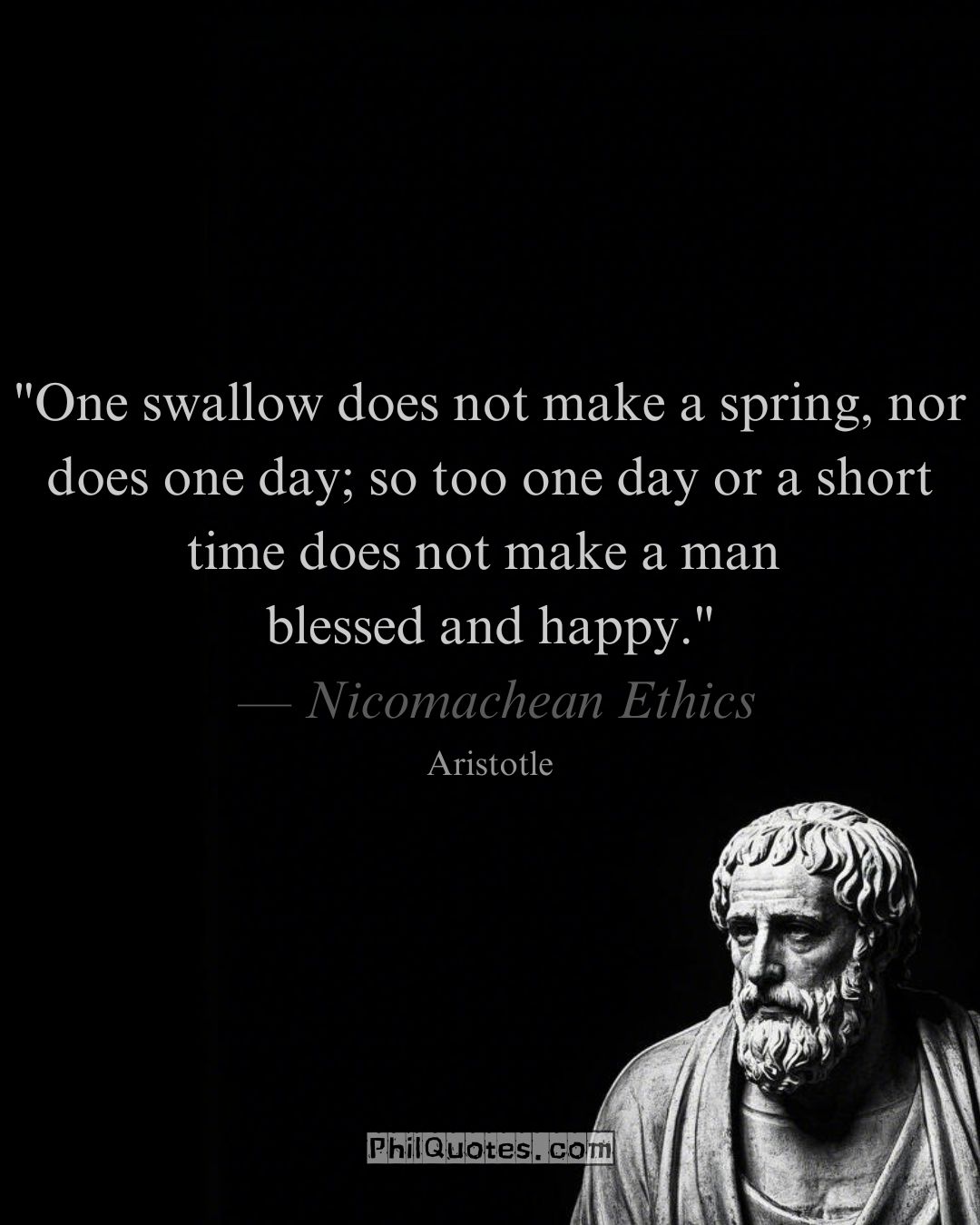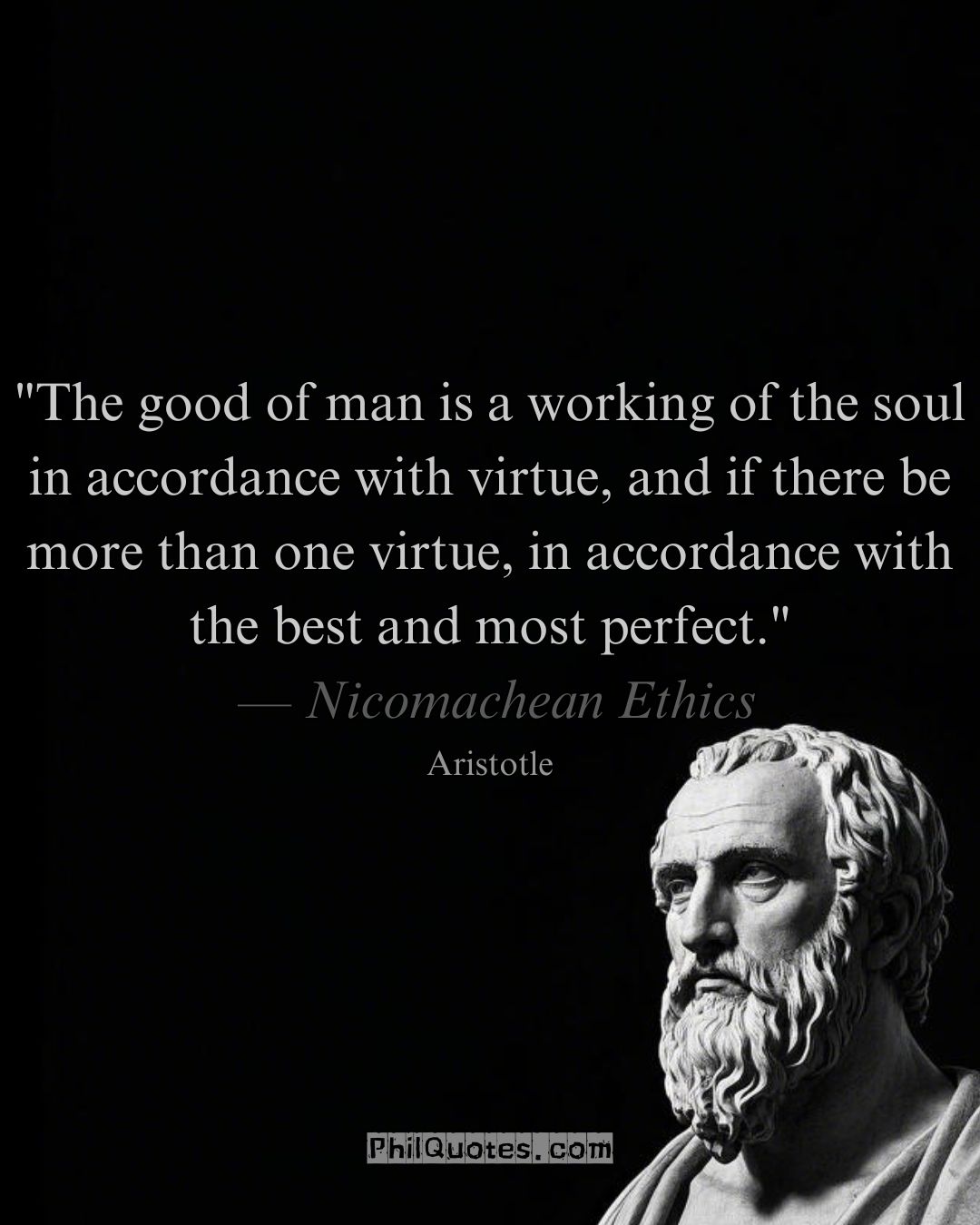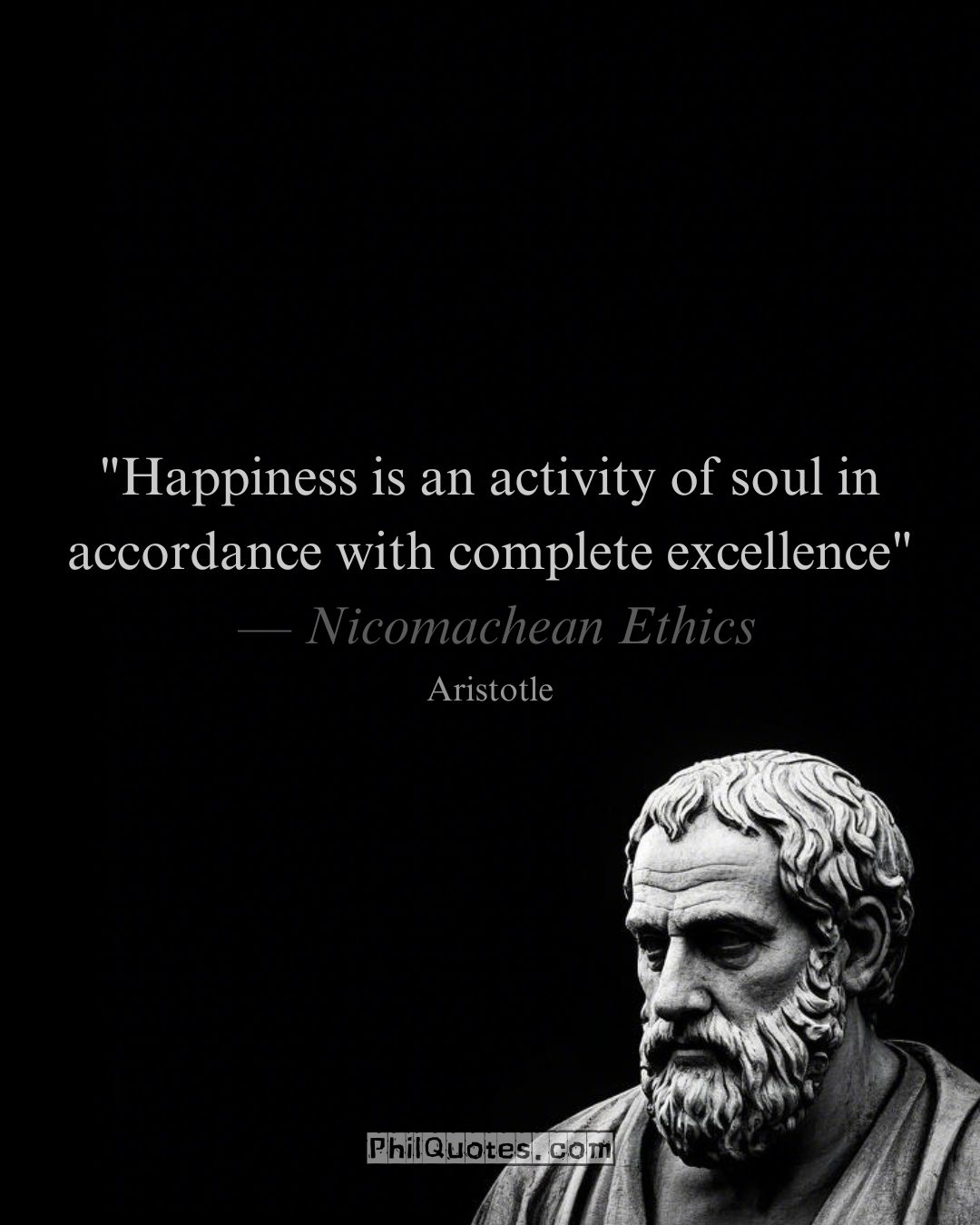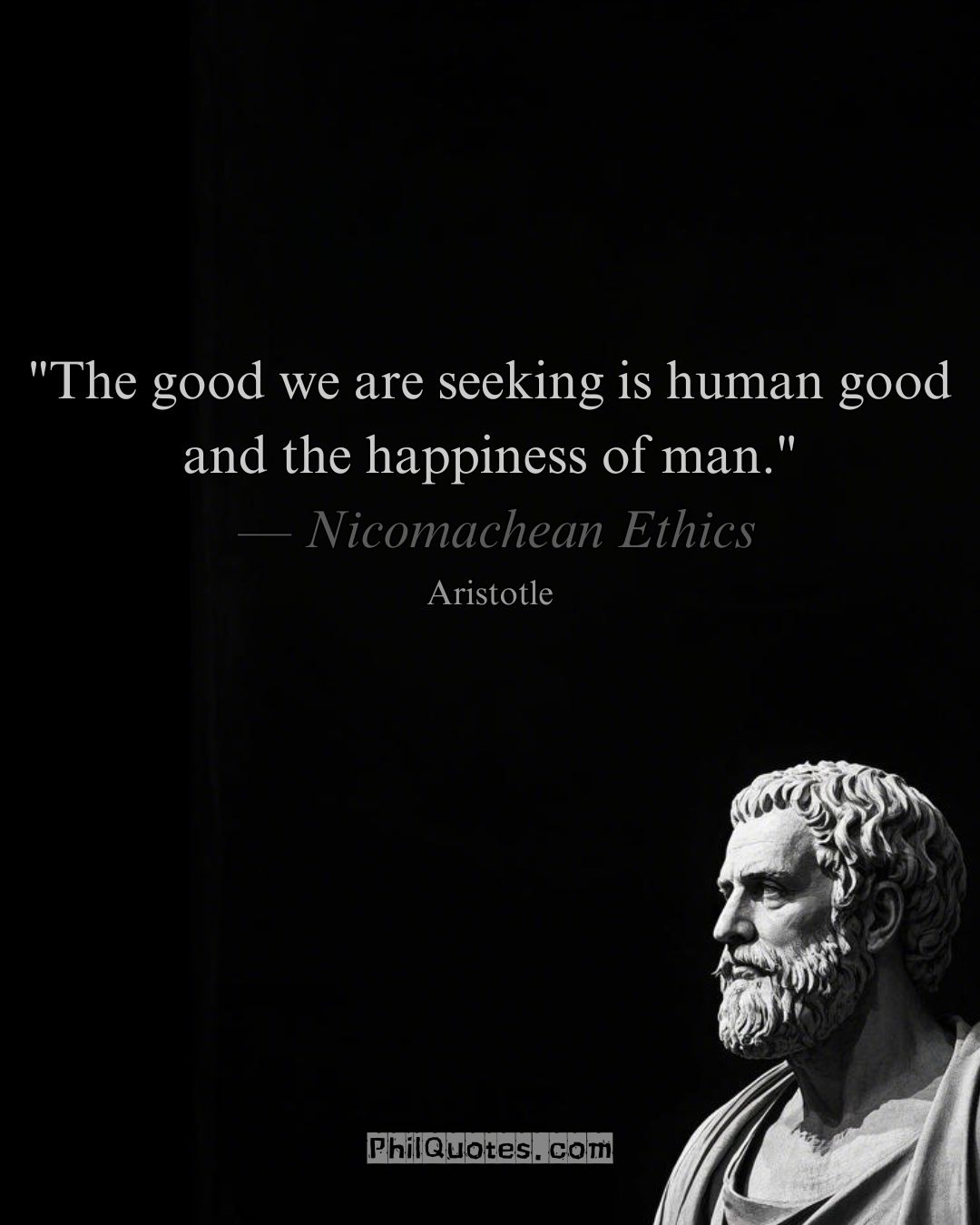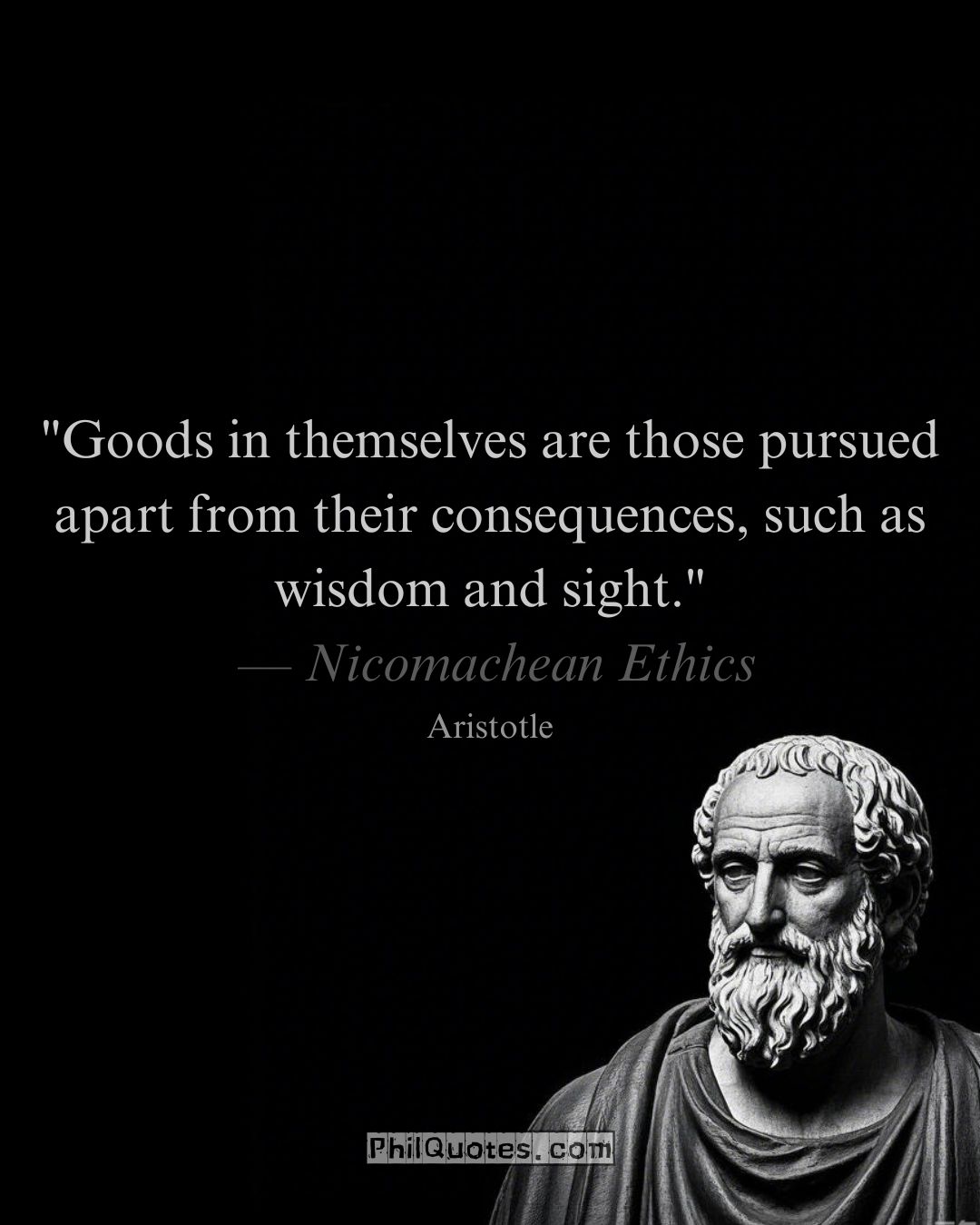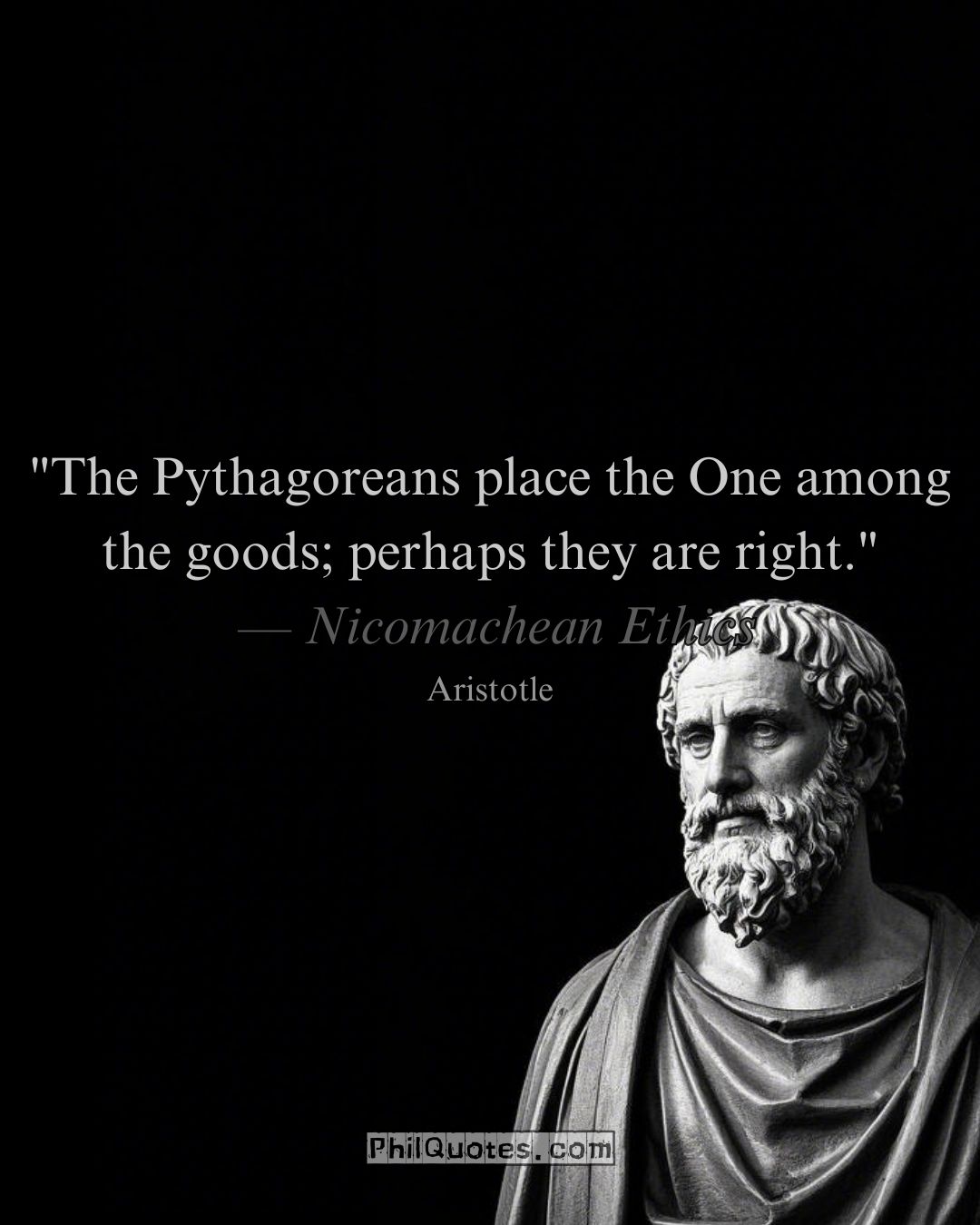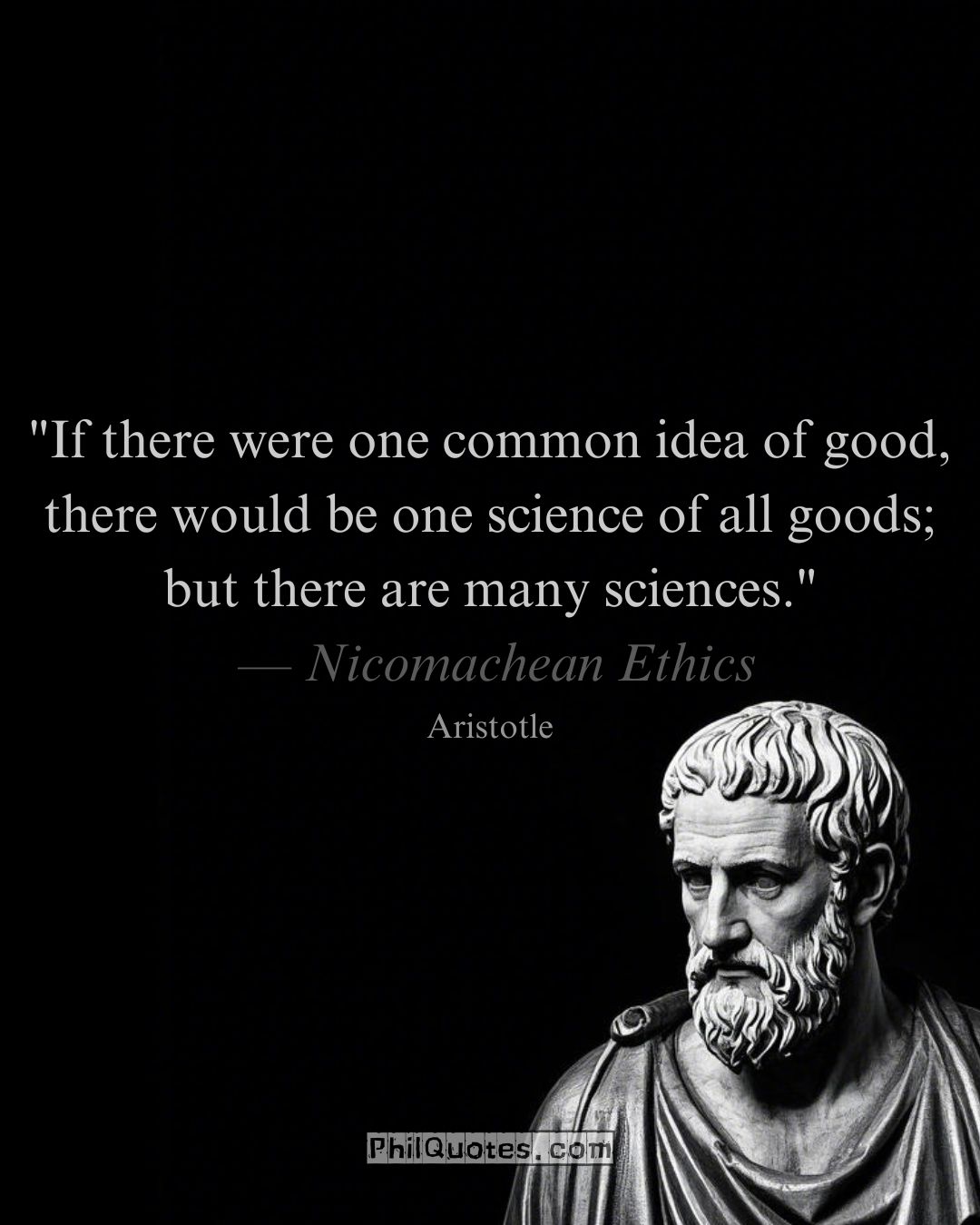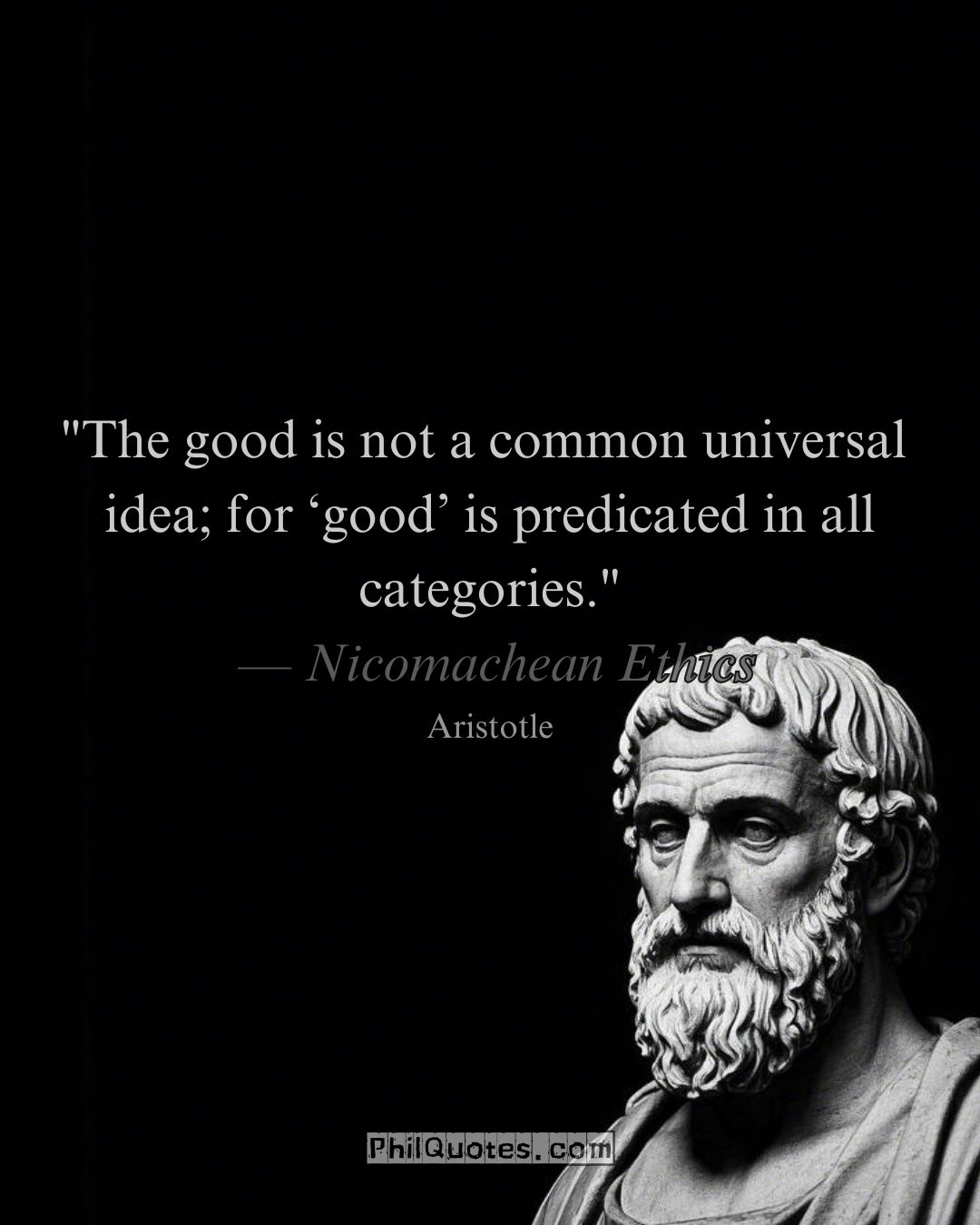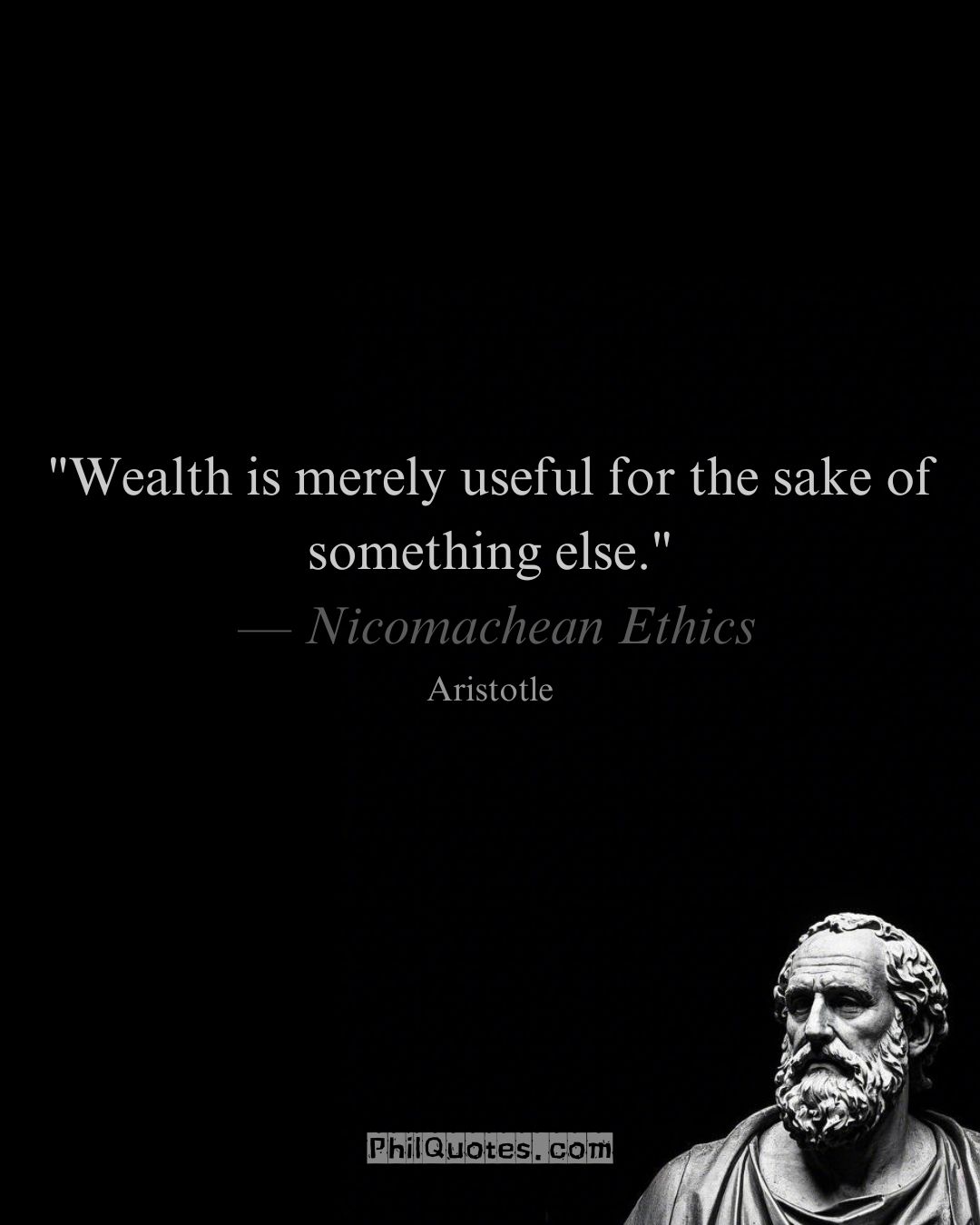Aristotle Nicomachean Ethics Quote: “Happiness demands not only perfect virtue but also a complete life.”
“Happiness demands not only perfect virtue but also a complete life.”— Aristotle, Nicomachean Ethics, Book I, Chapter 7 Simple Explanation:Aristotle argues that true happiness (eudaimonia) requires two pillars: Real-World Connection:① Lifelong Learning →You study AI at 20 → pioneer tech ethics at 40 (virtue in practice) → advise climate solutions at 60 (cross-generational impact) → … Read more
